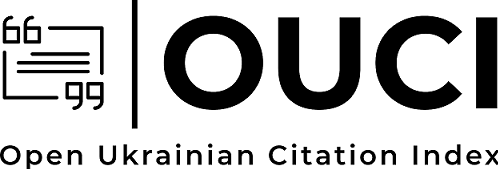Henryk Sienkiewicz’s Works as a Factor in the Struggle for the Revival of the Polish State: According to the materials of the Department of Library Collections and Historical Collections of V. I. Vernadskyi National Library of Ukraine
DOI:
https://doi.org/10.28925/2524-0757.2025.115Keywords:
Henryk Sienkiewicz, library, press, Polish publications, V. I. Vernadskyi National Library of UkraineAbstract
Having lost statehood at the end of the 18th century, the people of the Polish-Lithuanian Commonwealth desperately tried to regain it, organizing the November Uprising in 1830, and later the January Uprising in 1863–1864. Given the fact that historical science in the 19th century was elitist in nature, there was an urgent need to convey free-thinking national ideas and thoughts to the average citizen, in connection with which scientists very often resorted to journalism and literary creativity. It should be noted that for ordinary people deprived of independence, literature turned into a kind of “moral core” and a criterion of patriotism. The study deals with the publications of Henryk Sienkevych from the foreign literature fund, the Department of Library Collections and Historical Collections of V. I. Vernadskyi National Library of Ukraine with signs of their belonging to private book collections of representatives of the intelligentsia of the second half of the 19th — early 20th centuries. The scientific novelty lies in identifying the connections of Henryk Sienkiewicz with other personalities of the literary, scientific and publishing world. As a result of the scientific search and review of publications, some of the books from the book collections of the Polish and Ukrainian music publisher Leon Idzikowsky, the Polish politician Jan Wysniewski, the Warsaw agronomist Kazimierz Mostowski, the historian and ethnographer Mytrofan Dovnar-Zapolsky and others were found. The emergence in the second half of the 19th century of such an extraordinary figure as Henryk Sienkiewicz was largely due to new socio-political phenomena of a conceptual nature, which was particularly clearly affected by the national desire for Poland to regain independence from the Russian Empire. The writer’s efforts to pay as much attention as possible to the struggle of the Poles for national freedom often led to the fact that in his works of art the anti-Ukrainian ideological orientation became one of the dominant ones, a manifestation of the subjective perception of historical events. At the same time, the activity of the Polish artist, communication with extraordinary people in his country (M. Konopnytska, B. Prus, G. Siemiradsky) and beyond its borders, immersion in the national and world past inspired more than one generation of fellow citizens to resist the oppression of the tsarist government. This is clearly evidenced by the materials of the fund of the Department of Library Collections and Historical Collections of the V. I. Vernadskyi National Library of Ukraine.
Downloads
References
Borshchukov, V. (1983). Pole bitvy idei [Battlefield of Ideas]. Moscow, Nauka [in Russian].
Didora, L. (2020). Knyzhkovi znaky polskykh knyhozbiren u bibliotetsi NMIU [Bookmarks of Polish Book Collections in the NMIU Library]. Naukovyi visnyk NMIU, 6, 90–106 [in Ukrainian].
Dubrovina, L. A., & Onyshchenko, O. S. (1998). Istoriia natsionalnoi biblioteky Ukrainy imeni V. I. Vernadskoho 1918–1941 [History of the National Library of Ukraine named after V.I. Vernadsky 1918–1941]. Kyiv: NBUV [in Ukrainian].
Fedorova, L. (2013). Z istorii pamiatookhoronnyi ta muzeinoi spravy u Naddnipryanskii Ukraini.1870–1910 rr. [From the History of Memorial Preservation and Museum Affairs in Trans-Dnieper Ukraine. 1870–1910]. Kyiv: Institute of History of Ukraine at The NAS of Ukraine [in Ukrainian].
Jasińska, M. (1972). Zawadzki Józef. I. Treichel (red). Słownik pracowników książki polskiej. Warszawa, Łódź: PWN [in Polish].
Kikta, Т. (1972). Przemysł farmaceutyczny w Polsce (1823–1939). Warszawa [in Polish].
Krzemiński, Z. (1985). Mecenas Bolesław Bielawski. Palestra, 6, 330 [in Polish].
Lockert, L. (1919). Henryk Sienkiewicz. The Sewanee Review, 27(3) [in Polish].
Markiewicz, H. (1997). Sienkiewicz, Henryk Adam Aleksander Pius. Polski słownik biograficzny, 37, Warzawa-Kraków [in Polish].
Romanov, V. (2012). Starorezhimnyi chinovnik. Iz lichnykh vospominanii ot shkoly do emigratsii. 1874–1920 gg. [Old-Regime Official. From personal memories from school to emigration. 1874-1920]. Sankt-Peterburg. Nestor Istoriia [in Russian].
Stępień, U. (2015). Działalność kolekcjonerska ks. Jana Wiśniewskiego, na tle zainteresowań przeszłością sandomierskiego środowiska duchownego przełomu 19 i 20 wieku. Archiwa, Biblioteki I Muzea Kościelne, 104, 269–295 [in Polish]. https://doi.org/10.31743/abmk.12509
Studencki, W. (1967). Szkice literackie: wielcy i mali. Warzawa [in Polish].
Suslov, O. (2003). The role of Henryk Sienkiewicz in the formation of Polish national consciousness (1880–1914). (Extended abstract of Candidate’s thesis). Moscow [in Russian].
Wójcik, Z. (1963). Ks. Jan Wiśniewski (1876-1943). Archiwa, Biblioteki I Muzea Kościelne, 6, 279–294 [in Polish]. https://doi.org/10.31743/abmk.6413/
Published
How to Cite
Issue
Section
License
Copyright (c) 2025 Іванна Гуржій

This work is licensed under a Creative Commons Attribution-NonCommercial-ShareAlike 4.0 International License.
Authors who publish in this journal retain the right of authorship of the work and give to the journal right of first publication of this work under the conditions of Creative Commons: Attribution-NonCommercial-ShareAlike 4.0 International (CC BY-NC-SA 4.0), which allows others freely distribute the work published with reference to the authors of the original work and the first publication of this magazine.














